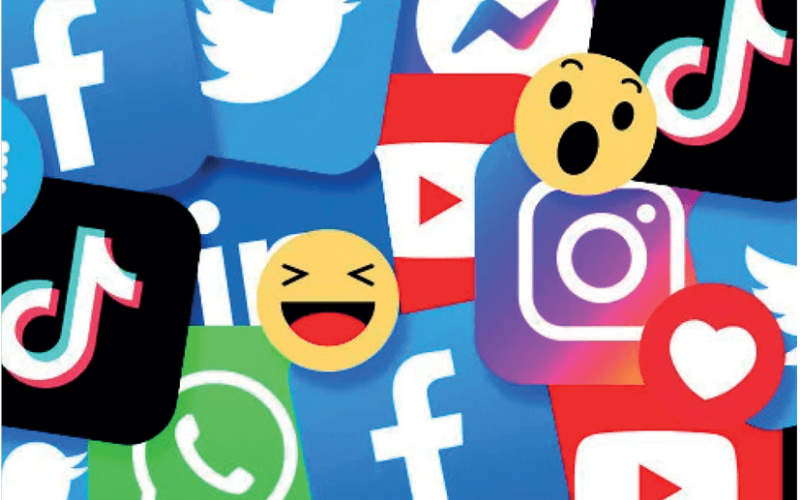Introduction
Social media has revolutionized how fans interact with their favorite celebrities, artists, and entertainment platforms. It has created new opportunities for engagement, fostered global communities, and even changed how fan culture evolves. This article explores how social media influences fan behavior, communication, and identity while analyzing its positive and negative effects.
The Rise of Social Media Fan Culture

Social media has quickly become a central part of fan culture. With platforms like Instagram, Twitter, and TikTok, fans now have the ability to directly interact with their favorite celebrities, influencers, and creators. This rise has transformed fans from passive viewers into active participants, sharing their thoughts, content, and opinions instantly. Over time, social media has helped create global communities of fans who can connect and support their idols no matter where they are in the world.
How Social Media Shapes Fan Communities
Social media platforms like Twitter, Instagram, and TikTok have turned fans into active participants in their favorite entertainment ecosystems. Instead of passively consuming content, fans now:
- Engage directly with creators through comments, likes, and live sessions.
- Collaborate with others in fan groups or hashtags to share experiences and ideas.
- Create original content such as fan art, memes, or videos.
For instance, hashtags such as #ArmyForBTS or #Swifties unite global fans, creating a sense of belonging and identity.
Benefits of Social Media Fan Culture
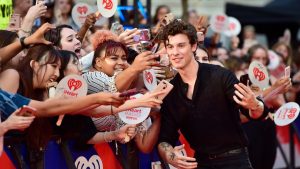
There are many advantages to fan culture on social media. One of the biggest benefits is the ability for fans to connect with others around the world. Fans no longer have to feel isolated they can join online communities and find people who share their interests.
Social media also gives fans a chance to directly engage with their favorite creators, whether through comments, likes, or even live interactions. Fans can now create their own content, such as memes, videos, and fan art, which helps them express their creativity and build a deeper connection with the things they love.
The Role of Social Media in Fan Culture
Social media plays a crucial role in shaping and spreading fan culture. It allows fans to amplify their voices and help support their idols in ways that were not possible before.
For example, fan-driven campaigns and voting contests can help celebrities win awards or boost their career. Fans can also boost streams of music, videos, or other content, making social media a powerful tool for an artist’s success. This active involvement gives fans a sense of importance and shows that they can directly impact the entertainment world.
Social Media’s Role in Amplifying Fandom
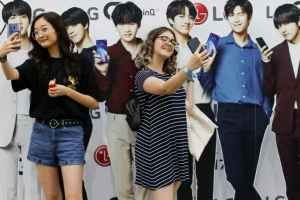
Platforms empower fans to make their voices heard, helping artists and creators reach wider audiences. Trends like viral challenges, fan campaigns, or support during awards directly impact an artist’s success.
Examples:
- Fan Campaigns: Voting for music awards online.
- Streaming Boosts: Fans promote albums to trend on platforms like Spotify or YouTube.
This dynamic has made fans an integral part of their idols’ growth and marketing.
Positive Impacts of Social Media Fan Culture
Social media has brought several benefits to fan culture, including:
- Connection Across Borders: Fans from different countries can interact and share their passion.
- Empowerment Through Interaction: Fans can influence entertainment industries by showing their loyalty.
- Creative Opportunities: Platforms enable fans to explore their creativity, from writing fanfiction to editing videos.
The Power of Hashtags in Connecting Fans
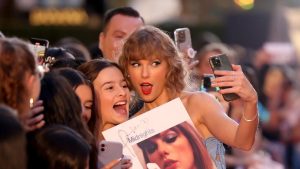
Hashtags on social media have become one of the most powerful tools for fans to connect with each other. By using specific hashtags like #BTSArmy or #Swifties, fans can easily find others who share their interests. These hashtags allow people to come together, share experiences, and support their idols.
Fans can also use hashtags to organize events, such as voting for their favorite artists or spreading the word about a new album or movie. Hashtags make fan culture more organized and help it grow even bigger, turning small communities into large global ones.
The Rise of Fan-Created Content
One of the most exciting parts of social media fan culture is how fans create their own content. Whether it’s making videos, designing fan art, or writing fanfiction, fans now have the ability to express their creativity and share it with the world.
This type of content helps deepen the connection between fans and their idols because it shows the personal passion fans have for the things they love. Social media platforms make it easy for fans to share their work and receive feedback, which often encourages more creativity and interaction.
Fans Shaping Trends and Content
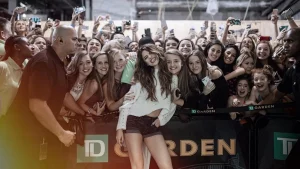
On social media, fans have the power to shape trends and even influence the content that creators make. When a fan group starts a movement or a trend, it can quickly go viral, pushing it into the spotlight.
For example, fans may create viral challenges, memes, or even campaigns to promote their favorite songs, movies, or celebrities. Creators often pay attention to what their fans are saying and may adjust their work based on fan feedback. This direct influence shows that fans aren’t just followers—they’re active participants in shaping the entertainment world.
Social Media as a Marketing Tool for Creators
For creators, social media has become an essential marketing tool. Artists, musicians, actors, and even influencers use social media to promote their latest work. Fans play an important role in this process, as they often share posts, comment on updates, and even create content that supports their favorite stars.
This gives creators a direct line to their audience and allows them to understand what their fans want. Social media also helps creators keep their fans updated on new projects or releases in real time, making it easier to generate excitement and maintain engagement.
The Dark Side of Fan Culture on Social Media
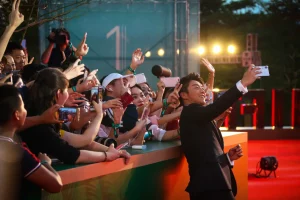
While social media fan culture has many benefits, there are darker sides that can be harmful. Some fans take their passion too far and engage in toxic behavior, such as bullying or attacking others who have different opinions. This can create a hostile environment, where fans feel unsafe to express themselves.
Additionally, the pressure on celebrities to constantly interact with their fans online can become overwhelming. When fans invade a celebrity’s privacy or expect too much, it can cause stress and negatively affect the mental health of both the creator and the fans themselves.
The Influence of Social Media on Fan Loyalty
Social media has made it easier for fans to show their loyalty to their favorite celebrities. By liking posts, sharing content, and joining online fan groups, fans can express their support in many ways. This kind of loyalty can have a huge impact on a creator’s career, as dedicated fans often help boost a celebrity’s popularity.
Social media also creates an environment where fans can interact with each other and form strong bonds. These loyal fans can become an important part of a creator’s success, helping to spread their name and support them through online interactions.
Social Media as a Platform for Fan Activism
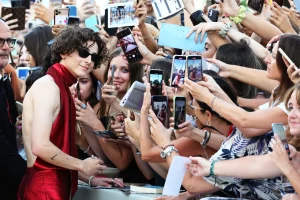
Another important aspect of fan culture on social media is activism. Fans often use social media to promote social causes, support charities, or advocate for changes within the entertainment industry.
For example, many fan groups have organized to support diversity in media, raise awareness for mental health issues, or fundraise for charities. Social media gives fans the power to bring attention to important issues, showing how fan culture can extend beyond just entertainment. This activism helps fans feel more connected to their idols and creates a sense of purpose within the community.
Challenges and Negative Impacts

Despite the many benefits, social media fan culture also comes with its challenges. One of the main problems is toxic behavior, such as online bullying or fan wars. Fans sometimes disagree or attack others who support different celebrities.
Additionally, the pressure to constantly create and share content can cause stress, both for fans and for the creators they follow. Social media can also invade personal privacy, as some fans go too far in trying to get attention from their idols. It’s important for everyone to respect boundaries and keep the online environment healthy.
While there are positives, social media has also introduced challenges for fan culture:
- Toxic Behavior: Online fan wars and cyberbullying have become common.
- Unrealistic Expectations: Fans may demand constant interaction, causing stress for creators.
- Privacy Issues: Overzealous fans can invade personal boundaries of celebrities.
These challenges emphasize the need for responsible use of social media.
The Future of Social Media Fan Culture
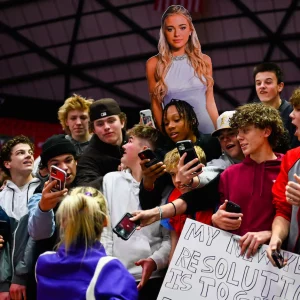
Looking ahead, social media fan culture is likely to continue evolving. As new platforms and tools emerge, fans will find even more creative ways to interact with their idols and each other. It’s also possible that the relationship between fans and creators will become even more collaborative, with fans having a larger say in the content being created.
However, it’s essential for everyone to be mindful of the challenges that come with this growth, such as maintaining privacy, managing expectations, and preventing online toxicity. The future of fan culture will depend on finding a balance between connection, creativity, and respect.
Analysis Table: Positive and Negative Effects
| Aspect | Positive Impact | Negative Impact |
|---|---|---|
| Global Connectivity | Unites fans globally | Can lead to misunderstandings across cultures |
| Fan-Creator Interaction | Strengthens loyalty and bonds | May blur professional and personal boundaries |
| Content Creation | Encourages creativity | Pressure to produce viral content may be stressful |
| Marketing Impact | Boosts artist visibility | Over-commercialization of fan engagement |
Comparative Table: Traditional vs. Social Media-Driven Fan Culture
| Feature | Traditional Fan Culture | Social Media Fan Culture |
|---|---|---|
| Communication | Letters, fan magazines | Instant messages, hashtags |
| Reach | Limited to local communities | Global, borderless communities |
| Content Sharing | Physical or word-of-mouth distribution | Digital sharing through posts, videos, memes |
| Influence on Industry | Minimal | Direct impact via campaigns and streaming boosts |
Conclusion
Social media has redefined fan culture, transforming it into a dynamic, interactive, and global phenomenon. While the benefits are undeniable, addressing its challenges is crucial for a balanced and healthy fan experience. By fostering positivity and respecting boundaries, social media can continue to be a powerful tool for connecting fans with their idols and with one another.






